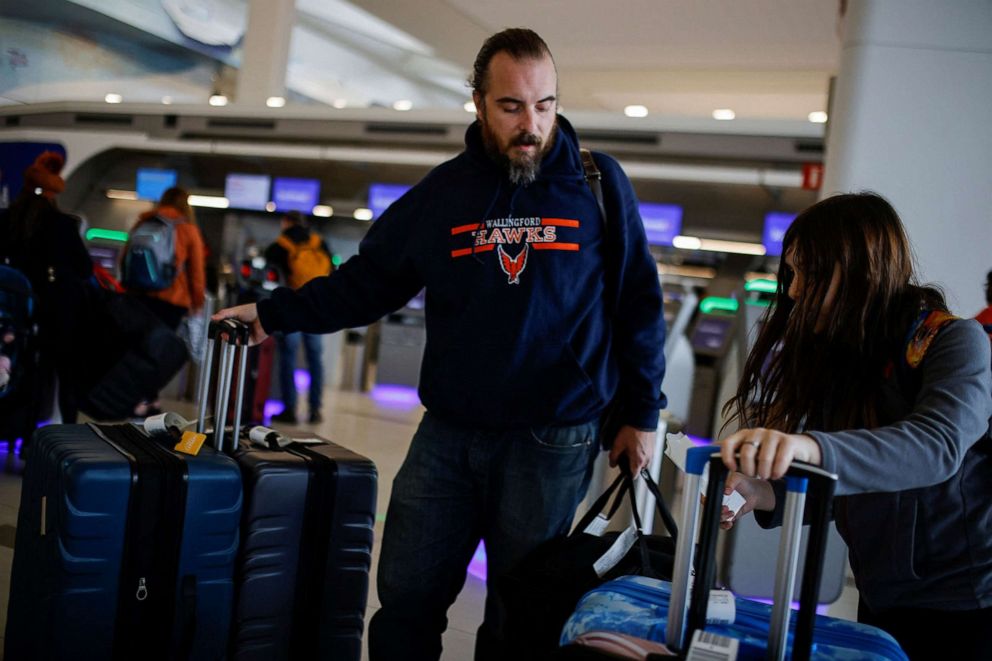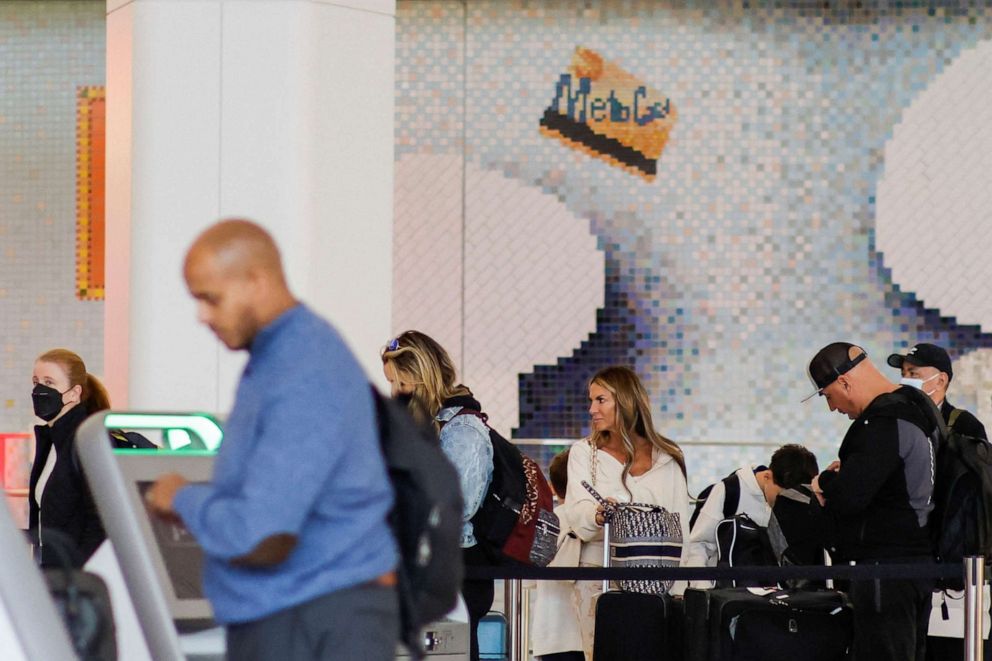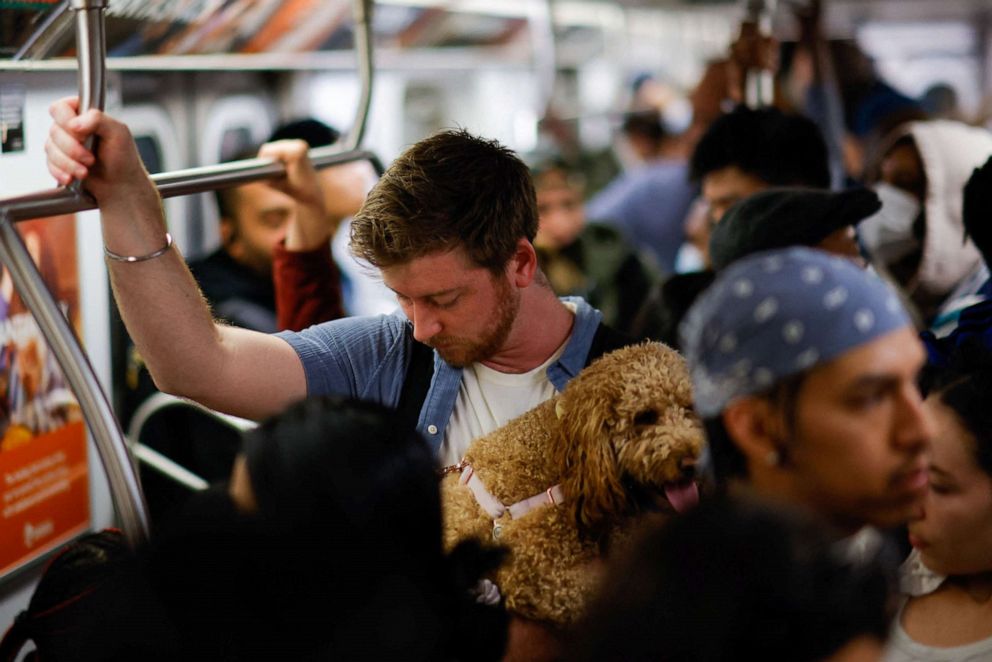What to know about COVID-19 risks as travel mask mandate is lifted
A federal judge struck down the CDC's mask mandate as "unlawful."
Confusion abounded after a federal judge in Florida struck down the Centers for Disease Control and Prevention's travel mask mandate Monday.
The mandate, first announced in January 2021, required travelers to wear masks on airplanes, in airports and other travel hubs, and while riding public transit.
But Judge Kathryn Kimball Mizelle for the Middle District of Florida wrote in her ruling that the mandate was "unlawful" and that the CDC exceeded its authority when the policy was implemented.
While many Americans are excited, others are attempting to figure out what the new rules mean about their risk of contracting COVID-19 while in transit and how to limit their exposure to the virus.

CDC still recommends wearing masks
Dr. Stuart Ray, a professor of medicine at Johns Hopkins University, said even though the travel mask mandate has been lifted, it doesn't mean people aren't allowed to wear face coverings when traveling.
In fact, he noted that the CDC still advises wearing masks in indoor public transportation settings.
"People should recognize that this does not mean the CDC is not recommending the masks in public," he said. "So, I think people should pay attention to that advice."
The lifting of the mandate comes as cases rise in the U.S., in part due to the BA.2 variant, a highly transmissible subvariant of the original omicron variant.
New COVID-19 cases in the U.S. have reached their highest point in more than a month, and in the last week, 34 states and territories have seen increases of about 10% or more.
Ray said the combination of increasing cases and the lifting of mandates will result in more spread, so even people who are not high risk or are younger may want to consider still wearing masks when they travel.
"As long as infection rates seem to be rising, I think it's wise to think about protecting yourself even if you don't have special vulnerability," he said.
What people at high risk for severe COVID-19 should consider
The ruling also has implications for people who are at high risk of severe illness, hospitalization and death, including immunocompromised people, those with underlying conditions, older people and those who are pregnant.
Currently, the CDC recommends these high-risk individuals wear a mask in public indoor spaces in areas with high transmission and to speak to their doctors about face coverings in areas with medium transmission.

Ray said the mandate being lifted "raises the temperature for risk" for these groups and they may want to consider taking precautions.
This could mean avoiding travel for the time being or making sure to wear a high-quality mask, such as an N95, when traveling to avoid infection.
"These people need to be that much more careful that they have a good mask, that they change it on a regular basis as recommended, that they take those measures, because others will be less likely to be wearing a mask and preventing spread," he said.
Increased importance of testing
Ray also said now that the mandate has been lifted, it will be more important for people to get tested after traveling somewhere.
He recommends that people take a rapid test after arriving at their destination and before they gather with others.
"We may want to make sure that we have rapid tests available because, right before the gathering, we can use those to mitigate the risk of transmission," Ray said.
Ray added that testing ahead of a gathering should be essential when people at risk of severe COVID-19 or who are immunocompromised are in attendance.
"The importance of that increases when there are more vulnerable people and, of course, it's hard to just look at someone and tell whether or not they're vulnerable," he said.
More long-term consequences
Another concern experts such as Ray have is that more people sitting in close proximity to each other unmasked on subways, trains or planes may result in more people who develop long-term problems from COVID-19 simply because more people will become infected.
This could mean more people with "long COVID," which occurs when patients who have recovered from the virus continue to experience symptoms weeks, or sometimes months or even years, after testing positive.

Other problems include heart and kidney damage, blood clots or Guillain-Barre syndrome, which can cause temporary paralysis, according to the Mayo Clinic.
Ray said he thinks the U.S. can balance these concerns about more people developing long-term complications "by being more cautious on a voluntary basis in the absence of the mandate."
He continued, "It's of course possible that the immunity we've built up is going to mitigate those long-term complications, but we won't know that for some time, and making decisions looking backward is always hard."
ABC News' Arielle Mitropoulos contributed to this report.




